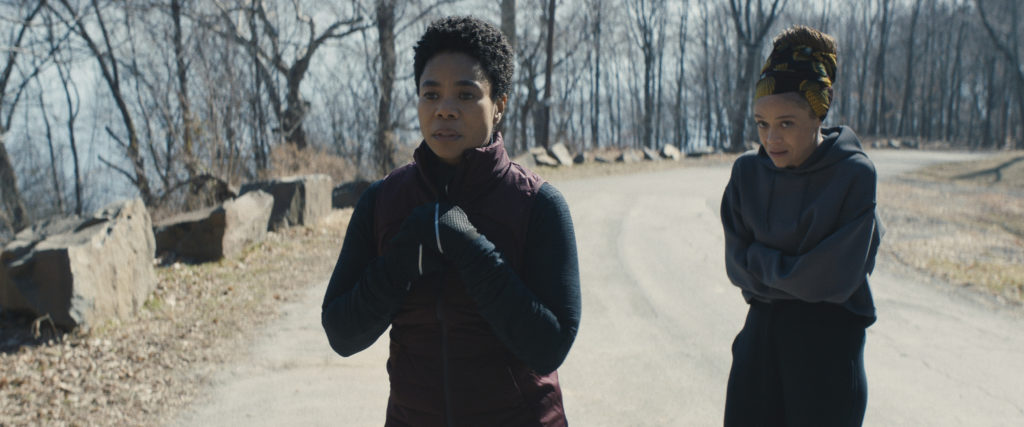Moviegoer: Master

Interesting ideas are lost in a muddled script in this horror movie
By Diana Beechener
Ancaster is a university with a long tradition of excellence. Graduates have become senators, presidents, and the influential. But one thing Ancaster can’t boast is diversity. Though the university is as old as America, there’s only one Black tenured professor on staff and eight members of the Black Student Union.
But Gail (Regina Hall: Nine Perfect Strangers) and Jasmine (Zoe Renee: Prom) are hoping to make great changes during their time at Ancaster. Gail is the first tenured Black professor and has just been elected Master of the students (essentially the dean). She hopes to make the college a more inclusive place and bring in fresh blood to both staff and the student body.
Jasmine was the valedictorian of her high school and is ready to make great strides as part of the freshman class. Though her roommate is a walking micro-aggression who tries to frighten her with a tale about a witch who preys upon minority students, Jasmine is determined to succeed.
But when strange events haunt both women, they question whether the storied institution they dreamed of joining is ready to welcome them.
Part supernatural horror, part satirical campus drama—and all pessimism—Master is a frustrating case of too many ideas and not enough resolution. The film aspires to Get Out and Candyman-level commentary on racial inequalities in academic circles, but writer/director Mariama Diallo’s feature debut isn’t focused enough to make incisive observations.
Diallo works best when picking apart the daily annoyances both Gail and Jasmine face. Gail must brave a tenure board where her every thought is challenged by one colleague desperate to “keep out unqualified people” and affirmed by another who condescendingly “sees and appreciates Gail’s unique perspective”. She can’t win. Even in her home, which is given to all Ancaster’s Masters, she is tormented by the idea that her place in the home is in the servant’s quarters, not the main bedroom. A small bell keeps ringing, a bell the colonial masters used to call for their slaves. Gail flinches every time she hears it.
There’s also a rot in the house that Gail can’t expel. Around every corner, in every drawer and secret place, Gail encounters maggots and more evidence that her home, and perhaps Ancaster in general, are rotten to the core.
Jasmine is facing her own set of problems from unnecessarily harsh grades from teachers to a roommate who allows her guests to lounge atop Jasmine’s bed without permission. She’s haunted by the fabled Ancaster witch, who seems set on killing her. This seemingly unnecessary storyline takes time away from what works best, Gail and Jasmine’s frustrations at a system built to keep them out.
But while there’s plenty to mine from these stories, Diallo doesn’t seem to reach any resolutions. The witch storyline in general is bizarre; even as a metaphor, it’s a distraction. There are a few legitimately creepy shots of the witch’s white hands clawing at Jasmine, but the threat of her seems rather abstract when there are actual hate crimes occurring in the film.
Worse, the characters are thin—neither Gail nor Jasmine seem like real, complex people and we get little context as to why they do the things they do. It’s frustrating since there’s a wealth of material in the ideas that Diallo brings up. We never really get to know Gail or Jasmine, because they’re ciphers, just a vehicle for the points Diallo wants to make. And that’s a shame because Diallo has some excellent ideas about the problems that lurk in the dark corners of storied collegiate institutions.
If you ever struggled with finding a place for yourself in an institution that wasn’t built for you, Master might hit some familiar notes. But in a movie so grounded in reality, the supernatural storylines seem like odd distractions.
Master is available on Amazon Prime and in select theaters.
Fair Horror * R * 98 mins.
